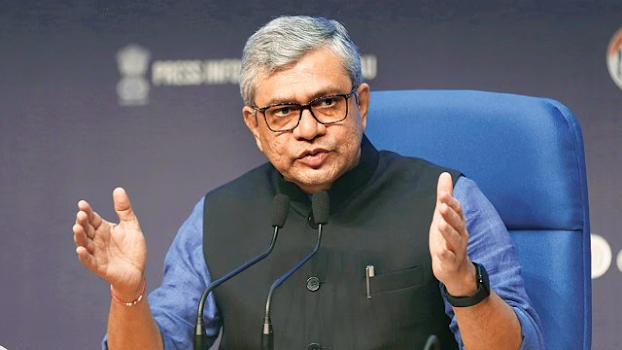The global AI landscape is evolving rapidly, with new breakthroughs reshaping the competitive dynamics among nations. The recent emergence of DeepSeek, a powerful AI model from China, has intensified discussions around India’s role in the AI race. In response, the Indian government has made a series of strategic announcements aimed at strengthening the country’s AI ecosystem, focusing on domestic GPU development and a foundational AI platform.
On February 4, 2025, Union Minister of Electronics and Information Technology Ashwini Vaishnaw revealed that India is set to develop its own Graphics Processing Unit (GPU) within three to five years and will launch a domestic foundational AI platform within the next 10 months. These moves signal a clear intent to build sovereign AI capabilities and reduce dependence on foreign technology.
India’s AI Push: Key Announcements
1. Development of India’s Own GPU
GPUs are the backbone of AI development, powering everything from model training to inference. Recognizing the critical role of these chips, Vaishnaw outlined a three-pronged approach to developing an India-made GPU:
- Leveraging existing open-source or licensed chip architectures
- Building upon these designs to develop indigenous capabilities
- Following global best practices to accelerate development
This initiative aligns with India’s broader semiconductor strategy, which includes investments in domestic chip manufacturing through partnerships with global players like TSMC and Micron. The goal is to reduce reliance on Nvidia and AMD, which currently dominate the high-performance computing space.
2. A Foundational AI Platform in 10 Months
India also plans to launch its own foundational AI model within the next 10 months. A foundational AI model, like GPT-4, LLaMA, or DeepSeek, serves as the base for applications across industries, from healthcare to finance.
This move is expected to:
- Strengthen India’s digital infrastructure
- Enable Indian researchers and startups to build AI solutions tailored for local needs
- Ensure data sovereignty and reduce dependence on foreign AI models
The success of this initiative will depend on investments in high-performance computing infrastructure, AI talent development, and industry-academia collaboration.
Why This Matters: India’s AI Strategy in a Global Context
India’s AI announcements come at a time when major global players are making significant strides:
- China’s DeepSeek has demonstrated the country’s ability to build world-class AI models, leveraging its massive computational resources and proprietary GPU technology.
- The U.S. remains the leader in AI, with companies like OpenAI, Google DeepMind, and Meta pushing the boundaries of generative AI.
- Europe is investing in AI regulation and ethical AI frameworks, positioning itself as a leader in responsible AI governance.
For India, the challenge is twofold:
- Catch up in AI research and infrastructure
- Ensure AI development aligns with national priorities, including affordability, accessibility, and linguistic diversity
Challenges and Road Ahead
While the announcements are promising, India faces several hurdles in execution:
- Lack of AI-specific hardware expertise: Developing GPUs requires decades of experience and significant R&D investments. India’s semiconductor industry is still in its early stages.
- Computational power constraints: Training foundational AI models requires massive data centers and high-performance computing clusters. India must invest in infrastructure similar to China’s Wudangshan Supercomputing Center or the U.S. DOE’s AI clusters.
- Talent gap: India has a strong IT and software ecosystem, but hardware design, semiconductor engineering, and AI research talent need further development.
The Indian government’s commitment to domestic AI and semiconductor development marks a critical step towards self-reliance. While challenges remain, initiatives like an indigenous GPU and a homegrown AI platform could position India as a significant player in the global AI race.
The next 12 to 24 months will be crucial in determining how effectively India can execute its AI strategy. The success of these initiatives will depend on public-private partnerships, government funding, and strategic global collaborations.
As AI continues to redefine economies, India’s ability to innovate and build sovereign AI capabilities will play a crucial role in shaping its technological and geopolitical future.
